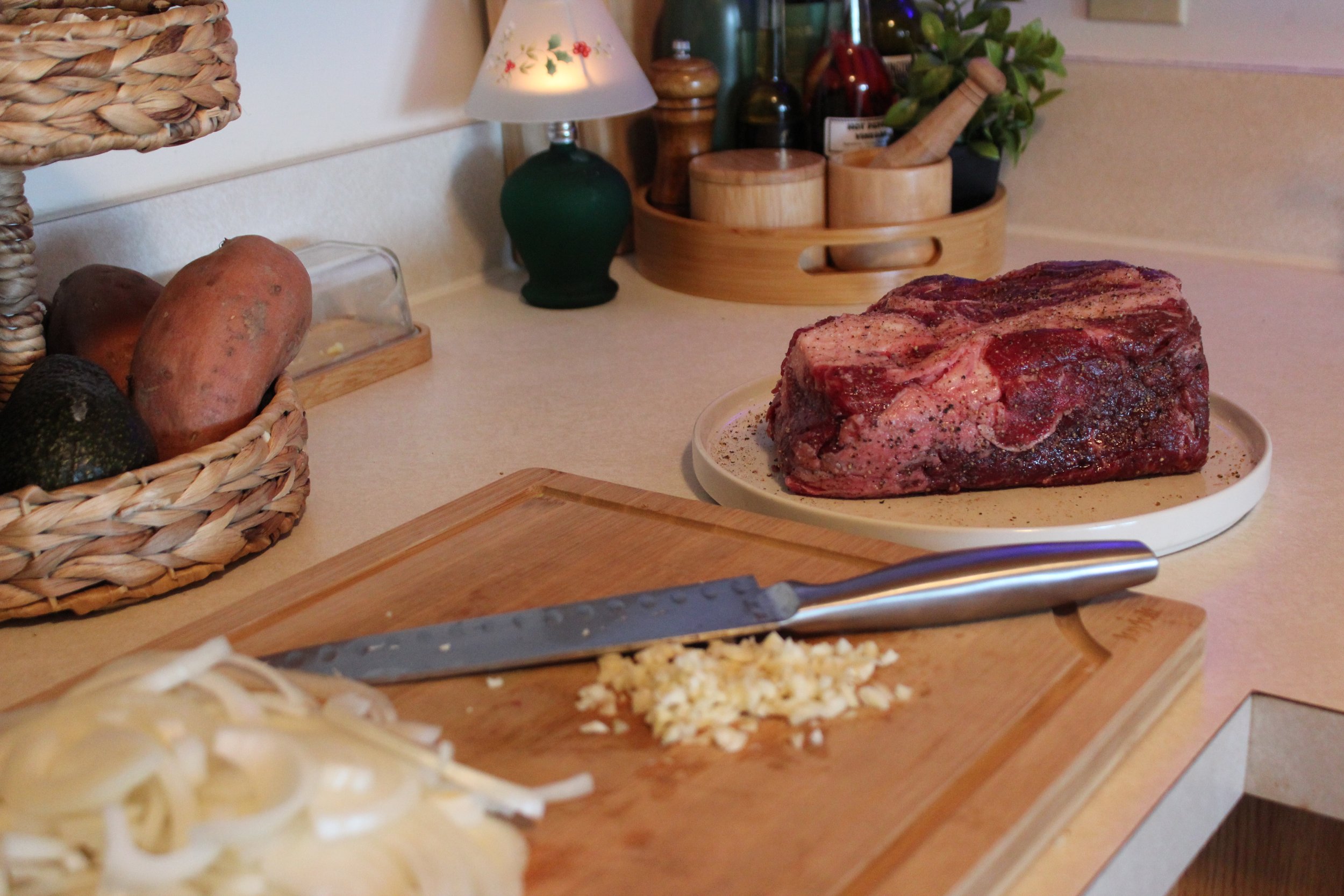Grass-Fed and Pasture-Raised Animal Products: Everything You Need To Know
Red meat. Cheese. Butter. What words come to mind when we think about these foods?
Fattening. Unhealthy. High cholesterol. Heart disease. The list can go on.
Diet culture today has convinced us that certain animal products, specifically red meat, cheese, and butter, are a risk to our health. However, there is a side to animal products that is not talked about nearly enough: grass-fed and pasture-raised animal products. Why is grass-fed and pasture-raised better for our bodies?
We begin by paying attention to the production of such foods. If you have an image in your mind of cows and chickens living on a large pasture, eating appropriate diets, and being butchered for the meat you get at your grocery store…think again. Mass production of meat looks more like this — the animals are living in a confined environment in feedlots or factory farms, eating processed grains or soy to fatten them up until they reach appropriate weight.
“You are what you eat” applies to animals too. When cows and chickens (or any animal for that matter) are not being fed a species-appropriate diet, it causes harm to the animal’s health and has a major impact on the nutritional quality of their meat, eggs, and dairy products. Consuming these low-quality products, specifically grain-fed beef, can result in a higher risk of heart disease, high cholesterol, and colon cancer. When choosing to eat meat, eggs, or dairy, opting for grass-fed and pasture-raised products can help lower these risks and provide extra nutrients in your diet that grain-fed products would not provide.
Grass-fed cows and pasture-raised chickens will produce high-quality, nutrient-dense food that is filled with essential healthy fats & vitamins, such as vitamin E and vitamin C. Specifically, grass-fed meat and dairy has less total fat and fewer calories compared to factory farm meat. The fats in grass-fed meat and dairy contain more nutrients and health-promoting fats that are essential for optimal health.
According to Melissa Diane Smith, author of several nutrition books such as “Going Against GMOs” and “Going Against the Grain”, although grass-fed meat and dairy has less total fat, it has higher levels of health-promoting fats. This includes conjugated linoleic acid, or CLA, which is believed to have cancer-fighting and fat-burning properties. It also provides more omega-3 essential fats that have anti-inflammatory properties.
Grass-fed red meat is even considered a gut healing superfood. Personally, I include grass-fed beef into my diet almost every single day.
Pasture-raised chickens are fed a diet that includes a range of insects and plants, which results in meat that is higher in omega-3 fatty acids, vitamin E, and conjugated linoleic acid (CLA) as well. These nutrients play a vital role in supporting our heart health, reducing inflammation, and improving overall wellbeing.
For more information about the health benefits of grass-fed meat and dairy, see here: https://rafterwranch.net/benefits-of-grass-fed-meat/
For more information about the health benefits of pasture-raised chicken and eggs, see here:

